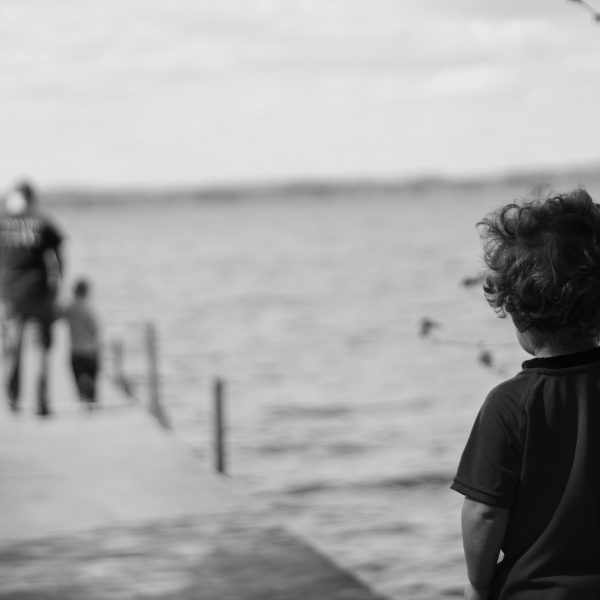QLD Child Protection Week showcases ECEC mentoring initiative

Queensland Child Protection Week, which runs from 1-7 September, has chosen to honour Yvonne Black and Annabel Park with the QCPW Education Initiative Award for their child protection mentoring program “Do you know the signs?”, which seeks to bridge a gap in tailored early childhood education and care (ECEC) training.
Ms Black noted a gap in protective education – much of the training available to early childhood education and care (ECEC) professionals trains educators to see signs that something has happened to a child which requires monitoring and follow up. Very little was done to educate professionals about proactive education and training BEFORE such an event was to occur.
The Sector recently spoke with Ms Park about the program, seeking to learn more about the program, its applications to the ECEC sector, and how educators can be better prepared to support children and families to be safe.
The title of your work is “do you know the signs” – what are some of the signs which educators get confused about?
Children have a natural curiosity about their own, and other people’s bodies. While ECEC professionals receive training and have extensive knowledge around childhood development, sexual development is often not discussed. This can lead to confusion around what is typical and developmentally appropriate childhood sexual behaviour and what could be cause for concern.
Children’s developing sexuality is often reflected in behaviour and play and when ECEC professionals, as well as parents are carers, understand and acknowledge childhood sexuality it helps them to understand and accept childhood sexual behaviour and respond positively.
How does the mentoring element of the program work?
The Do you know the signs? Child protection mentoring programme is negotiated with each centre and is tailored to meet the specific needs of the ECEC professionals and children at the centre.
This can involve True Relationships and Reproductive Health (True) supporting ECEC professionals over multiple visits to plan, implement and reflect on a programme that supports teaching protective factors such as bodily autonomy, feelings, rules about touch and help seeking.
Some of the ECEC professionals that the programme mentors are very experienced in this area and are seeking further support and guidance around their practice; others are wanting to build their knowledge and skill around child protection.
Any advice for overcoming cultural issues? For example, some educators may not feel comfortable speaking to children of the opposite sex about protective behaviours. Likewise, some parents may object to children receiving training in protective behaviours at a young age.
Helping children to be safe is one of our most important responsibilities as educators, while recognising that parents and carers are the primary sexuality educators of their children.
Communication with parents and carers about the ways in which sexuality is addressed in ECEC settings is important to developing partnerships with families.
People have a wide range of experiences, which can impact on how they feel about sexuality. Practices or beliefs relating to sexuality in a person’s family, culture or religion can contribute to people feeling uncomfortable when talking about sexuality. It is important for ECEC Professionals to be aware of these issues and seek support.
Accessing professional development opportunities, resources and support from colleagues are all important components to helping children to be healthy and safe, along with being inclusive and affirming diversity and communicating with parents and carers about the ways in which bodies, relationships and sexuality is addressed in the early childhood setting.
The Do you know the signs? Child protection mentoring programme supports parent/carer involvement through offering information sessions and sharing resources.
Many ECEC educators have undertaken mandated reporting courses, yet signs of abuse or neglect can be missed. Why do you think this is, and how can that be changed?
Do you know the signs? Child protection mentoring programme expands on traditional ‘child protection’ training to support ECEC professionals to understand typical and age appropriate sexual development and implement protective factors in early years settings. The mixture of face-to-face training, resource provision and mentoring enhances confidence in the sector.
Through our mentoring, we introduce a layered approach by working with ECEC services to plan their programme, and then working together multiple times, to build capacity within centres and families. This approach has a greater potential for sustained positive impacts for young children and the local community and gives ECEC professionals the tools to be able to confidently respond to and report signs of harm or abuse.
Do you know the signs? Child protection mentoring programme has been implemented in Inala-Ipswich region with funding from Mission Australia Communities for Children (Inala-Ipswich) and is available to local ECEC centres (in selected postcodes) free of charge.
Over the past four years, more than 450 educators have engaged in the training, with the program gaining previous recognition as a Promising Program with the Australian Institute of Family Studies late in 2018.
To find out more about Queensland Child Protection Week or to access a range of resources please visit the Child Protection Week website.
Popular

Practice
Provider
Quality
Research
Workforce
New activity booklet supports everyday conversations to keep children safe
2025-07-10 09:00:16
by Fiona Alston

Quality
Practice
Provider
Research
Workforce
Honouring the quiet magic of early childhood
2025-07-11 09:15:00
by Fiona Alston

Quality
Practice
Provider
Workforce
Reclaiming Joy: Why connection, curiosity and care still matter in early childhood education
2025-07-09 10:00:07
by Fiona Alston












